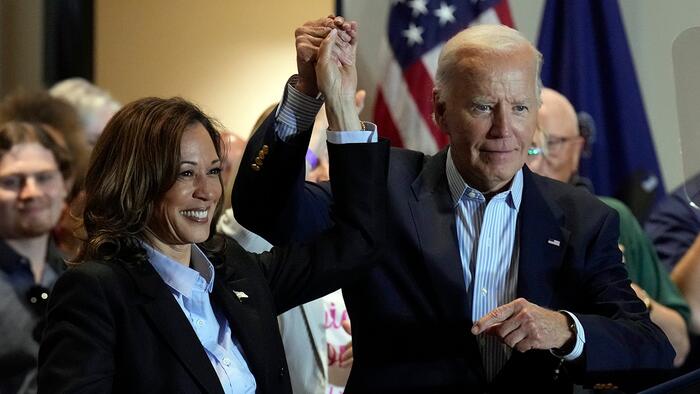As the U.S. presidential election approaches, the political ramifications of Democratic nominee Kamala Harris’ steadfast support for President Joe Biden’s policy on Israel’s military actions in Gaza have drawn intensified scrutiny, especially considering recent polling data indicating her vulnerability in key battleground states. A Quinnipiac University poll highlighted that Harris is trailing GOP nominee Donald Trump by three percentage points in Michigan, a noteworthy change from previous data where she enjoyed a slight lead. The poll results are particularly alarming in light of Michigan’s significant Arab American and Muslim population, many of whom have been directly impacted by the ongoing violence in Gaza. The sentiments towards both candidates underscore a prevailing perception, with 53% of Michiganders asserting that Trump would be better at addressing the Middle East conflict.
James Zogby, president of the Arab American Institute, emphasized the necessity for Harris to connect with Arab American voters if she wishes to gain their support. He pointed out a lack of effort from the Harris campaign to address the needs of this crucial demographic. Zogby noted that a national poll indicated that expressing support for an arms embargo against Israel could potentially enhance Harris’ electoral support. The deep-seated emotions and affiliations among Michigan voters, many of whom have personal ties to Lebanon and Palestine, compound the political risks for Harris. Zogby warned that the Biden administration’s backing of Israel’s actions, which has caused extensive suffering, could lead to voter disengagement or retaliation against Democratic candidates.
Harris’ previous acknowledgment of the “immense suffering” endured by Palestinians has not translated into definitive policy changes or distancing from Biden’s stance on Israel. During a recent interview, Harris made clear her refusal to support the withholding of arms to Israel, a critical issue given the criticism that U.S. weaponry has been implicated in the ongoing violence. The vice president’s reluctance to engage directly with constituents from affected regions further alienates voters who feel their concerns are being ignored. Dearborn Mayor Abdullah Hammoud articulated that while Trump poses risks to Arab Americans, the Harris campaign’s failure to consider their views on significant issues like the arms embargo serves to weaken her appeal among this electorate.
The implications of the Harris campaign’s stance are significant, particularly in Michigan, where Trump won by a narrow margin in 2016. With a substantial Arab American community of over 200,000 residents, the potential for Harris to alienate voters through indifference to their concerns represents a considerable political risk. Hammoud urged that it should not fall on the Arab American community to alter its values to align with candidates, but rather, candidates must adapt to the evolving perspectives of the electorate. The continuation of the status quo is increasingly untenable, with the public’s awareness of foreign policy issues intensifying, particularly regarding the humanitarian crises perpetuated by military actions.
Recent polling from Emerson College reaffirms Harris and Trump’s precarious balance in Michigan, indicating that even minor fluctuations in voter sentiment could result in significant electoral consequences. Observers argue that Harris has an urgent need to address her stance on Israel to bolster her standing and connect with voters. Columnists have suggested that a public address where Harris distances herself from Biden’s approach could be crucial to winning Michigan—a critical state—and potentially averting another Trump presidency.
The persuasive political context underscores the urgent need for Harris to clarify her position on Israel and openly address the values and principles that resonate with the electorate, especially in light of humanitarian concerns regarding the conflict in Gaza. While the Harris campaign may underestimate the urgency felt by voters regarding these issues, neglecting to respond to voter discontent could turn potentially supportive constituents into dissenters, critically undermining her chances in the upcoming election. For Harris, this moment represents not merely a political strategy but a moral imperative to acknowledge and advocate for populations that feel directly impacted by her administration’s foreign policy.

